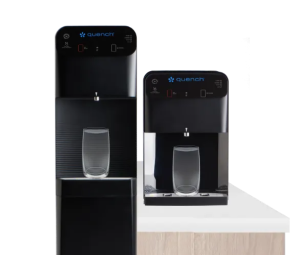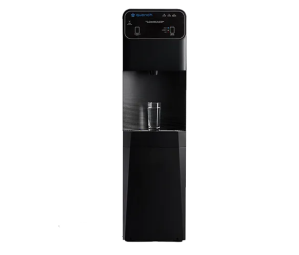
Why does my water smell like wet dog?
Most would agree that dogs are adorable, but even the most dog-friendly people may not enjoy tap water that smells like man’s best friend. A wet dog smell in your water can be alarming. Yet, according to the Centers for Disease Control (CDC), “a change in your water’s taste, color, or smell is not necessarily a health concern.” That being said, it’s important to understand the source of the smell and take steps to eliminate it, so you can enjoy better-tasting (and smelling) water.
Quick facts
- Common reasons why your water may smell like a damp dog may include concentrations of metal in your pipes, organisms and/or bacteria, chemicals used to remove certain organisms, or environmental contaminants based on where you live.
- If there’s a wet dog smell coming from your tap water, it’s more than likely from the hot water pipe.
- If your water comes from a municipal treatment facility, chances are that wet dog smell is safe since water from municipal treatment facilities is tested regularly.
- When it comes to water from a private well, bacteria may be to blame for the strange smell. Well water tends to accumulate more bacteria than regularly treated sources.
There are several ways to locate and remove the problem:
- Locate the taps where the foul smell is coming from.
- Get your water tested by your local Water Testing Lab, which you can find here.
- If your water comes from a private source, such as a well, you may need to take additional steps, which can be found here.
What causes the “wet dog” smell?
There are signs you can look for in your home or workplace to uncover the source of the wet dog smell. There’s a natural amount of minerals and metals in your water, but sometimes larger concentrations of metal in your pipes can affect the scent of your water. Lead, copper, magnesium, iron, and sodium can build up in your plumbing and taint your water supply.
Both PVC and copper pipes tend to collect mineral deposits over time. They may serve as a breeding ground for bacteria, which can cause your water to have an unpleasant aroma. Ironically, the chemicals used to remove these organisms can also cause your water to smell. Additionally, the strange smell in your water could be caused by sulfur, which can also make your water smell like rotten eggs.
Other reasons for smelly water
The smell of wet dog is unmistakable, but it’s not the only odor you might detect from your water cup. In fact, there are several distinct smells to take note of, each with potential underlying issues, including:
- Rotten eggs: If you notice your water smells like rotten eggs, it could be due to sulfur bacteria and hydrogen sulfide gas in your water supply or a reaction in your water heater. While usually safe, it’s worth investigating for potential water contamination issues.
- Sewage: Water that smells like sewage could be due to bacteria buildup in your pipes, especially in the water heater if it’s been at a low temperature or unused for a while. Hydrogen sulfide gas, which has a rotten egg smell, may also be a culprit, often originating from bacteria in the water heater.
- Bleach and chlorine: High levels of chlorine, commonly used as a disinfectant in public water systems to eliminate bacteria and viruses, could be behind water that smells like bleach or chlorine. While small traces of chlorine are necessary and not harmful, over-chlorination can lead to an unpleasant medical smell.
- Fish: Water with a fishy smell can often be attributed to naturally occurring organic material in your water source, chloramine compounds used in water treatment, or algal blooms in warm weather. While the smell may not necessarily indicate harmful contaminants, it suggests that your water quality could be improved.
Given the variety of water smells and possible underlying issues, it’s crucial to recognize your local water quality and explore solutions to improve your drinking water. Understanding this is key for long-term hydration and, consequently, your overall well-being.
What should you do?
Public water treatment facilities, whether owned by the government or by private companies, are subject to regulations set by the Environmental Protection Agency (EPA). According to the CDC, the tap water of over 286 million people comes from a community water system. However, if your water comes from a private ground well, your water is not subject to the EPA’s regulations for water systems.
If your water smells like a wet dog and you are one of the millions of Americans who receive water from a public treatment facility, you likely have nothing to worry about. Public treatment facilities treat tap water regularly and follow strict health guidelines. If your home or workplace pulls water from a private well, that wet dog smell may be a result of bacteria in your water and you should have your source tested by following the steps recommended by the EPA.
Taking steps to restore neutral-smelling water
In any case, it’s worth having a professional come out to diagnose your water. In the meantime, consider investing in a water cooler with advanced filtration technology. Our mission at Culligan Quench is to deliver fresh, clean water to all workplaces across North America via our top-of-the-line water coolers with advanced filtration technology. Culligan Quench bottleless water coolers remove harmful levels of bacteria and add back healthy minerals and electrolytes. Take a look at our product line or get a free quote for a water cooler today.

